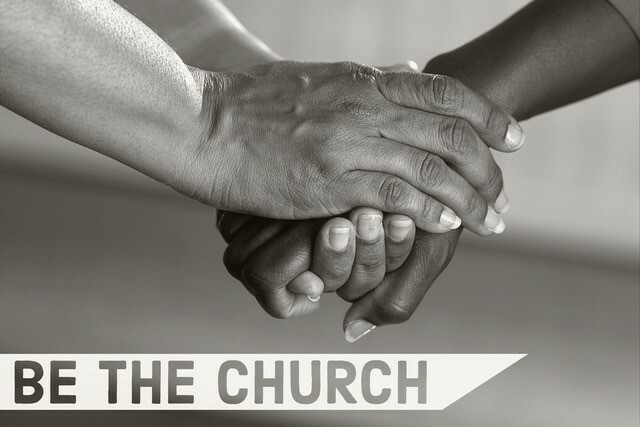Be the Church 4 (Worship)
John 4:23-24
Be the Church – Part 4: Worship
October 7, 2018
This morning, we continue our series, “Be the Church.” And, as you can tell, we are doing things a bit differently today. We will continue in worship at the end of the service.
So far in this series, we have considered…
- …that the church isn’t primarily a brick and mortar building, it is people.
- …that God’s vision for the church is bigger than ours because it’s His church, not ours.
- …that God’s people are expected to grow and mature in the faith.
Beginning this morning, and throughout the rest of this series, we will consider the church’s job as an institution. We’ll do this by looking at the 5 purposes of the church—worshipping, growing, belonging, sharing, and serving.
I’ll begin today with worship.
The word worship descends from an old Saxon word which later became worthship. To worship God means to ascribe the proper worth to God, to magnify His worthiness of praise, or better, to approach and address God as He is worthy.
He is worthy of all the worth and honor we can give Him and then infinitely more.
- All of that is wordy, so how about we define worship like this: Worship is focusing on and responding to God.
- The more we focus on God, the more we understand and appreciate His infinite worth.
- As we understand and appreciate this, we can’t help but respond to Him.
- Just as an indescribable sunset or a breathtaking mountain view evokes a spontaneous response, so we cannot encounter the worthiness of God without the response of worship.
- If we could see God at this moment, we would so utterly understand His worthiness of worship that we would instinctively fall on our faces and worship Him.
Worship is the primary function of the church and as such, it is the church’s job to teach about worship.
We can understand worship two different ways. First, in the most general sense, Christians have the responsibility to express worship—honor, adoration, reverence, trust, love, loyalty, and dependence—in the way we live our lives every day. Anything we do can be an act of worship if we do it in a way that honors God. This includes how we treat people, how we do our jobs, how we handle our money, etc. This is not the sense of worship I want to elaborate on this morning.
The second sense of worship, and what we’ll focus on this morning, is what happens we when gather as the family of God for a worship service. Everything we do in a service like this is designed to help us focus on God and respond to Him.
We can focus on God and respond to him because he has revealed himself to us. You might ask how he has revealed himself. Thanks for asking.
- First, He has revealed Himself in a general way through Creation
Romans 1:20 (NIV84) – For since the creation of the world God’s invisible qualities—his eternal power and divine nature—have been clearly seen, being understood from what has been made, so that men are without excuse. - Second, and more specifically, God has revealed Himself through His Word.
- Through His written Word, the Bible
(see 2 Timothy 3:16; 2 Peter 1:20-21). - Through His living Word, Jesus Christ (see John 1:1,14; Hebrews 1:1-2).
- Through His written Word, the Bible
- As we encounter God through these means, we see Him revealed and respond with worship.
- What are some appropriate ways to respond in worship?
- We do that through singing.
- We do it with musical instruments.
- We do it by clapping.
- We do it by praying, both corporately and individually.
- We do it through teaching and preaching.
- We do it through giving.
- We do it when we celebrate communion.
- We do it through greeting people and making them feel welcome. (Church experience out west.)
- We might respond emotionally.
- Unfortunately, we sometimes bring such a consumer, me-first mentality to the church that we assume it’s the worship team’s job to bring us to the point where we feel like responding in worship.
- That is absolute hogwash!
- Such an attitude dethrones God as the object of worship and replaces him with our preferences.
- I served a different church as a youth pastor before I came to Trinity in 1994.
- The worship service was the same each week—three old hymns played on a slightly out of tune piano and an organ, with a segment of the congregation who always seemed to sing a ½ beat too slow.
- This was a stark contrast to my home church where we sang a mixture of hymns and praise and worship choruses with a team of singers and small church orchestra.
- In my heart, I couldn’t stand the way worship was done each week at that church…until one week when God spoke to my heart and said, “Is this about you or is it about me?”
- How many of you know that God didn’t ask because he didn’t know? He asked because I had dethroned Him as the object of worship and replaced him with my preferences…and I needed to be corrected.
Let’s move on from that
- Worship often includes words and actions, but it goes beyond them to the focus of the mind and heart.
- Worship is the God-centered focus and response of the soul;
- it is being preoccupied with God.
- So, no matter what we are saying or singing or doing at any moment, we are worshiping God only when He is the center of our attention.
- Since worship is focusing on and responding to God, regardless of what else we are doing we are not worshiping if we are not thinking about God.
Let’s look at the most important NT passage on worship.
John 4:23–24 (NIV84) – 23 Yet a time is coming and has now come when the true worshipers will worship the Father in spirit and truth, for they are the kind of worshipers the Father seeks. 24 God is spirit, and his worshipers must worship in spirit and in truth.
- To worship God in spirit involves worship from the inside out.
- Worship isn’t a show, it’s a response.
- To worship God in truth means to worship according to the truth of Scripture.
- We worship God as He is revealed in the Bible, not as we might want Him to be.
- We worship Him according to the truth of who He says He is:
- a God of both mercy and justice,
- of love and wrath,
- who both welcomes people to heaven and condemns people to hell.
- We worship in both spirit and truth,
- with both heart and head,
- with both emotion and thought.
Worship should be practiced publicly and privately
Hebrews 10:25 (NIV84)
25 Let us not give up meeting together, as some are in the habit of doing, but let us encourage one another—and all the more as you see the Day approaching.
Luke 5:16 (NIV84)
16 But Jesus often withdrew to lonely places and prayed.
Pastor Donald Whitney writes these penetrating words about the need for public and private worship:
- How can we worship God publicly once each week when we do not care to worship Him privately throughout the week? Can we expect the flames of our worship of God to burn brightly in public on the Lord’s Day when they barely flicker for Him in secret on other days? Could it be that our corporate worship experience often dissatisfies us because we do not pursue satisfying worship in private?
Worship is a discipline to be cultivated.
- Without discipline, our worship of God will be thin and inconsistent.
- Worship can’t be calculated or produced.
- Instead, it is evoked; it’s the response of a heart evoked by the beauty, glory, and allure of the object of our focus—a holy God.
The worship of God makes us godlier because we become like the things we focus on.
Series Information

In a very real sense, we do not come to church, we are the church. We are to be the hands and feet and love of Jesus to people who often don't even understand that they need him.
